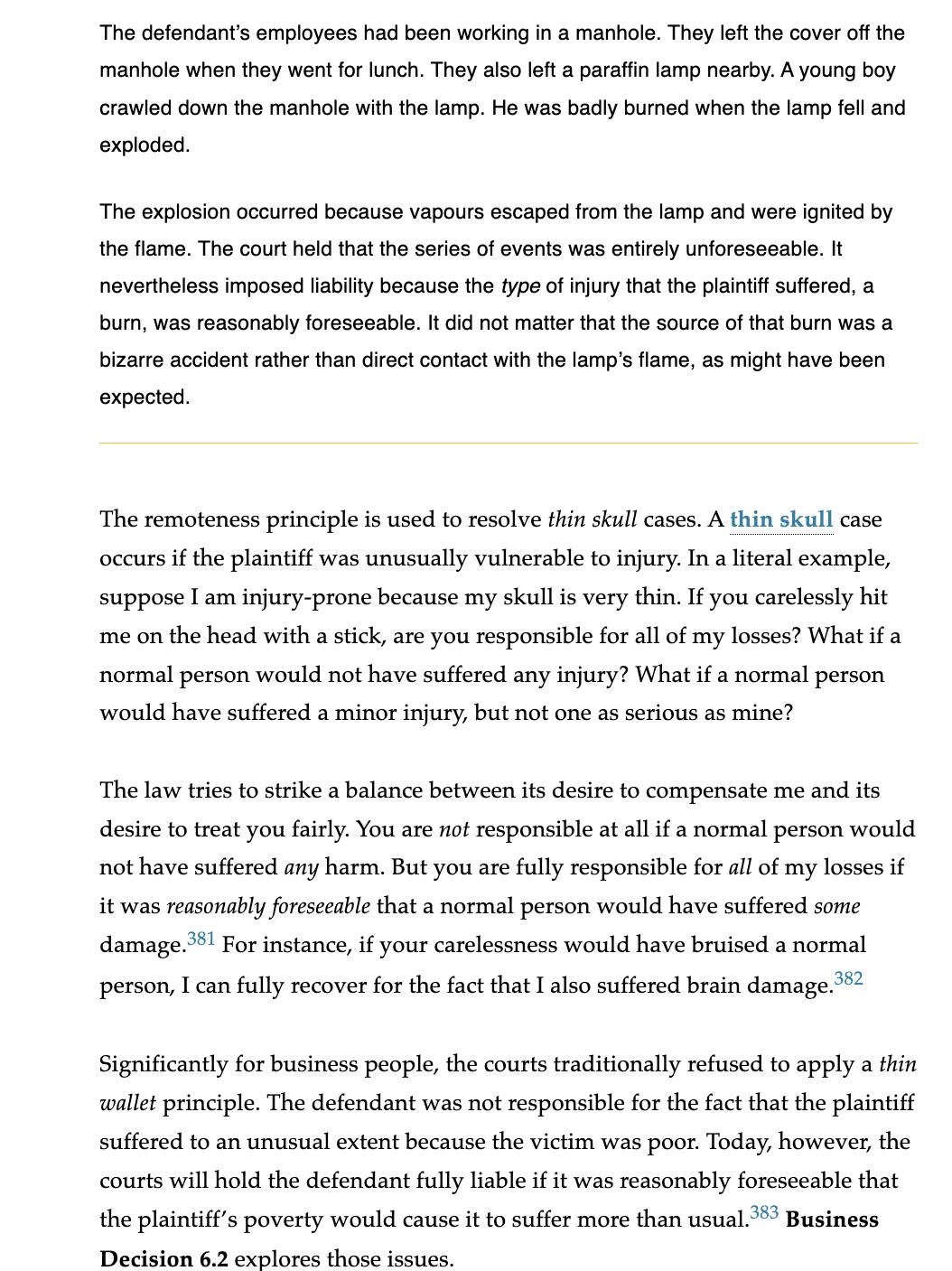Answered step by step
Verified Expert Solution
Question
1 Approved Answer
The defendant's employees had been working in a manhole. They left the cover off the manhole when they went for lunch. They also left

The defendant's employees had been working in a manhole. They left the cover off the manhole when they went for lunch. They also left a paraffin lamp nearby. A young boy crawled down the manhole with the lamp. He was badly burned when the lamp fell and exploded. The explosion occurred because vapours escaped from the lamp and were ignited by the flame. The court held that the series of events was entirely unforeseeable. It nevertheless imposed liability because the type of injury that the plaintiff suffered, a burn, was reasonably foreseeable. It did not matter that the source of that burn was a bizarre accident rather than direct contact with the lamp's flame, as might have been expected. The remoteness principle is used to resolve thin skull cases. A thin skull case occurs if the plaintiff was unusually vulnerable to injury. In a literal example, suppose I am injury-prone because my skull is very thin. If you carelessly hit me on the head with a stick, are you responsible for all of my losses? What if a normal person would not have suffered any injury? What if a normal person would have suffered a minor injury, but not one as serious as mine? The law tries to strike a balance between its desire to compensate me and its desire to treat you fairly. You are not responsible at all if a normal person would not have suffered any harm. But you are fully responsible for all of my losses if it was reasonably foreseeable that a normal person would have suffered some damage. 381 For instance, if your carelessness would have bruised a normal person, I can fully recover for the fact that I also suffered brain damage. 382 Significantly for business people, the courts traditionally refused to apply a thin wallet principle. The defendant was not responsible for the fact that the plaintiff suffered to an unusual extent because the victim was poor. Today, however, the courts will hold the defendant fully liable if it was reasonably foreseeable that the plaintiff's poverty would cause it to suffer more than usual. 383 Business Decision 6.2 explores those issues.
Step by Step Solution
★★★★★
3.33 Rating (141 Votes )
There are 3 Steps involved in it
Step: 1
It seems like youre summarizing legal principles regarding foreseea...
Get Instant Access to Expert-Tailored Solutions
See step-by-step solutions with expert insights and AI powered tools for academic success
Step: 2

Step: 3

Ace Your Homework with AI
Get the answers you need in no time with our AI-driven, step-by-step assistance
Get Started


